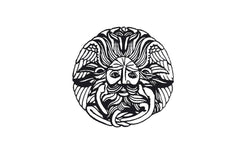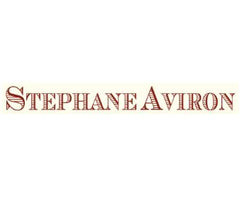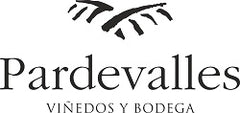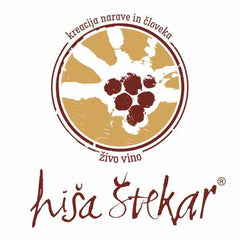10% off a selection of client favourites, staff picks, new arrivals, and hidden gems. Discount will be applied at check-out.
Offer ends December 31st 11:59pm eastern.
Wines will be delivered by early January.
9 products
- Rosé Wine
- Grenache, Syrah
- Organic, Vegan-Friendly
- Dry
- Medium Bodied
- 750ml
- 13.5% alc./vol
About the Winery
Mas Carlot

Mas Carlot is situated in the south of the Rhône Valley, extending across 76 hectares of pebbly land southeast of Nîmes. Originally a 17th century farm, this beautiful estate was resurrected in the 1960's by the Blanc family—it is currently run Cyril Mares of the neighbouring and equally reputable property, Mas Bressades.
The appellation of Costières de Nîmes used to be considered part of eastern Languedoc but the climate, soil, topography and wine are far closer to those just over the river in the Southern Côtes du Rhône. It is now a region very much on the up and is widely recognized as a great source of excellent value wine.
Press Reviews
Robert Parker
91 points
Mas Carlot's 2021 Costieres de Nimes Rose Generations is a terrific blend of 55% Grenache, 35% Syrah and 10% Mourvèdre. Offering up generous aromas of strawberry, watermelon and lime, it's medium-bodied, plump and expansive on the palate. Made in a traditional style, with more color and extraction than the skinnier, more citrusy Provence wannabes, this is a lovely wine, with touches of silk and spice on the finish, not just citrus.
- Sparkling Wine
- Chardonnay
- Sustainable, Vegan-Friendly
- Dry
- Medium Bodied
- 750ml
- 12.00% alc./vol
About the Winery
Domaine Baud Père et Fils

The history of Domaine Baud dates back to 1742, and it wasn't until 1950 when René Baud, the 7th generation, rebuilt the vineyard which had suffered from the phylloxera crisis and two World Wars.
Starting with only 4 hectares, the vineyard progressively expanded to 20 hectares with the help of successive generations. Now, managed by siblings Clémentine and Bastien, the 9th generation, the estate continues to flourish and grow, with a strong commitment to sustainable viticulture and preserving the traditions and style that makes the wines of the Jura so unique and incredible.
The estate achieved the Terra Vitis certification in 2014 for its eco-friendly work and environmental preservation.
Press Reviews
Wine Align
92 points - David Lawrason
This is a very tasty, rich, golden hued, well aged chardonnay-based sparkler with an involved nose of cashew, baked apple, nougat and honey. It is almost creamy in texture with fine mousse and very good acidity providing counterpoint. There is pleasant nutty bitterness on the finish; length is excellent.
91 points - Michael Godel
Varietal chardonnay that sees a year of lees aging with a dosage to reach the desired Brut. A richness and also dried herbal notes plus fennel that is offset by a creamy sweetness melting and melded through the pictorial texture of a wine so sharp and yet so soft. One imagines the Baud family being led by such humans and when a wine acts as an expression of they, well isn’t that the point in a wine like this? Drink 2022-2024. Tasted July 2022.
Baud’s Crémant is made in true Blanc de Blancs style, from 100 per cent chardonnay and though faintly if beautifully oxidative, the cuvée pulses with great energy. The scents of fraying ginger batons, scraped orange skin and baking almond cookies are all a treat for the olfactory. Just enough but not too much sweetness fleshes the the body to get down to density in mouthfeel but never abandons its airy character. A terrific Champagne alternative that was disgorged in October of 2017. Drink 2018-2022. Tasted April 2018.
Treve Ring
91 points
This family estate dates back to 1742, but it wasn't until 1950 when René Baud, 7th generation, rebuilt the vineyards, expanding from 4 hectares into 20 hectares over the years. Today the estate is managed by siblings Clémentine and Bastien, 9th generation. This sustainably farmed chardonnay is rooted in the Jura's marl and limestone soils and was fermented in stainless before a year on lees before disgorgement and release. Green apple, white florals, oyster shells, meadow herbs, meringue run the bright, sleek palate, with a bed of creamy lees. There's a lovely streaming anise note that leads to a lengthy finish. Drinking beautifully now, but will hold over the next couple years easy.
- Red Wine
- Pinot Noir
- Sustainable
- Dry
- Medium Bodied
- 750ml
- 13% alc./vol
About the Winery
Groupe Bellene

Led by Nicolas Potel in Beaune, Groupe Bellene is composed of the négociant arm Maison Roche de Bellene, the winery arm Domaine de Bellene, and a special back-vintage series under the Collection Bellenum label.
- Maison Roche de Bellene offers a complete range of wines, with an emphasis on individual terroirs from old vines of more than 40 years. All of the growers that Nicolas works with are either organic certified or sustainably farmed.
- Domaine de Bellene represents the wines that are produced and bottled from Nicolas Potel's private vineyard holdings.
- Collection Bellenum is a back vintage series that Nicolas Potel sourced from his friends in the region, offering a magnificent selection of bottled history. The wines have moved only twice in their lives, from the original cellar to Potel's and now to yours!
Nicolas Potel grew up at Volnay's Domaine Pousse d'Or, where his father worked. He trained abroad and returned home in 1996 to build a négociant business and started Maison Nicolas Potel, where he sourced grapes from good parcels, often working with the growers to improve the quality. By 2002, he was making 120 wines from 50 different appellations, and the rest is history!
Press Reviews
Wine Align
91 points - David Lawrason
This is an utterly charming, easy drinking and refined pinot. The hot 2018 vintage has layered in some ripeness with fine aromas of red cherry/raspberry compote, fine shrubby, foresty notes, and subtle oak spice. It is light to medium bodied, very smooth with fine tannin. The length is very good to excellent. Such poise and balance. Best now to 2023. Tasted June 2021.
90 points - Michael Godel
Nothing quite like a “normal” year to craft the most getable and crushable Bourgogne at the behest and passionate hands of Nicolas Potel. Old vines are in the 45 to 50 year range in highest of high density plantings harvested at a “normal” time in this post-modernist, climate adjusted period. That being the 5th to the 13th of September and fruit already ripe, burning the brix and phenol candle at both ends. Nose in to the promise of violets and roses, dive in for crunchy red fruit and some pretty solid tannins. That early yet necessary pick preserved acids with much to say in a pinot noir as tart and spirited as it is enriching of spirit. Despite the high drink-ability factor the structural parts creep up so wait a year for this to settle further. Drink 2022-2025. Tasted June 2021.
90 points - Sara d'Amato
Lovely, bright, crunchy and lively, this entry level Bourgogne from Roche de Bellene rarely disappoints. With a fine, elegant, and well-integrated oak treatment and an invitingly silky texture, this pinot noir is notably compelling and delivers solid value. Excellent length. Tasted June 2021.
- Red Wine
- Gamay
- Biodynamic, Sustainable, Vegan-Friendly, Volcanic
- Dry
- Medium Bodied
- 750ml
- 13% alc./vol
About the Winery
Stéphane Aviron

Stéphane Aviron can be considered a pioneer in his approach to winemaking in Beaujolais, however he would just tell you that he’s simply returning to the traditional practices that have always made fantastic Gamay wines. Sustainable viticulture, extremely old vines and classic Burgundian techniques. He focuses on the Beaujolais village crus, all but forgotten gems of vineyards when the nouveau craze took over, which are the best sites for unique, expressive and terroir driven wines. All of the fruit is sourced from old vines (40+ years), so seeing Vieilles Vignes on the label is a rite of passage, not a privilege. Authenticity and a distinctly Beaujolais style of winemaking is what sets Stéphane apart from the rest.
Press Reviews
Wine Align
93 points - David Lawrason
Chenas is one of the smallest appellations of Beaujolais, situated astride more famous Fleurie. Both villages tend to make gamays with both richness and elegance. This sports a ripe nose of cherry/strawberry jam, peony and subtle pepper. It is medium bodied, smooth, firm and refined with gentle tannin. And the length is excellent. Very easy to enjoy now and should hold through 2028. Tasted June 2022
92 points - Megha Jandhyala
This is a fetching gamay with buoyant fruit notes of cherries and raspberries accompanied by aromas of candied violets, rosemary, and snapped twigs. The palate echoes these flavours with subtle notes of cured meat joining the chorus. Tannins are satin smooth and acids are tart. Length is excellent with a delightful fruity finale. Best 2022-2027. Tasted June 2022 by Critic Understudy Megha Jandhyala.
91 points - John Szabo, MS
This is a pleasantly twiggy-herbal-stemmy expression of Chenas with plenty of joyful fruit underpinning the ensemble. I like the fleshy dark cherry fruit on the palate, the silky-firm tannins, and the excellent length in the category. A superior cru; drink or hold late into the decade. Tasted June 2022.
91 points - Michael Godel
Chénas by Aviron is the cru that takes what the Villages offers and simply gives more. By home and vineyard the extrapolation and extension is natural, seamless and duly noted, from dancing fruit, happy palate and now, something viably more. Salumi and wet stone, a modicum of structure, violets in perfume and furthered texture. A positive thickening that stays with the palate, lingers and gracefully moves on. This is gamay to pour for people ready to get it and get at it. Drink 2022-2026. Tasted June 2022.
90 points - Sara d'Amato
An intriguing mix of ripe and jammy along with stemmy and herbal from the warm 2020 vintage. Juicy on the palate with flavours of cherry, bramble, wet leaf and a hint of carbonic. Mouthfilling and fleshy overall with plush red fruit on the finish of very good length. Tasted June 2022.
- Red Wine
- Cabernet Franc, Cabernet Sauvignon, Merlot
- Dry
- Medium Bodied
- 750ml
Press Reviews
Wine Align
91 points - Michael Godel
2014: A blend of merlot, cabernet sauvignon and cabernet franc in Pomerol mimic, attractive and edgy when it wants or needs to be. Right Bank stylistic in any case, herbals and amaro welling through with liqueur consistency and fashion. Quite chic and notably concentrated for 2014, really credible, with brisk acidity and plenty of toughness keeping the wine safe, elongated and with portents of further potential. Quite a steal actually. Drink 2021-2024. Tasted November 2021.
90 points - John Szabo
2014: Maturing, classy and complex Bordeaux here, delivering far above its price category in terms of complexity, depth and overall refinement and polish. It's drinking very well at the moment, with grainy tannins lining up with succulent acids, notably absent the green character of many 2014 Bordeaux (especially at this price level). Really quite an excellent experience all in all. Drink or continue to hold into the mid-late-'20s. Tasted November 2021.
- Rosé Wine
- Prieto Picudo
- Sustainable, Vegan-Friendly
- Dry
- Medium Bodied
- 750ml
- 13.5% alc./vol
About the Winery
Bodegas y Viñedos Pardevalles
 Pardevalles is recognized for being one of the driving forces behind the D.O Tierra de León, betting on the development of the indigenous grape varieties Prieto Picudo and Albarín Blanco. In 1949 Rafael Alonso founded Pardevalles continuing with the family tradition of growing grapes and making wine. The winemaking tradition in León goes back more than 400 years, famous for its centuries-old caves where wine was originally made.
Pardevalles is recognized for being one of the driving forces behind the D.O Tierra de León, betting on the development of the indigenous grape varieties Prieto Picudo and Albarín Blanco. In 1949 Rafael Alonso founded Pardevalles continuing with the family tradition of growing grapes and making wine. The winemaking tradition in León goes back more than 400 years, famous for its centuries-old caves where wine was originally made.The vineyards of Pardevalles are located between 750 and 820 metres above sea level, in an area with a Continental climate. They grow in poor, rocky alluvial soils which helps maintain the freshness in the wines. The philosophy of the Estate is grounded in making wines which express the character and identity of their origin, with a deep respect for the earth and the indigenous varieties of grape, combining tradition, innovation, and hard work.
Press Reviews
WineAlign
90 points - Sara d'Amato
Pours a luminous, deep pink, this rosada from Leon is made entirely of the indigenous prieto picudo grape, more typically a blending variety with dark skins and often resulting in wines with licorice-tinged black and red fruit. With youthful exuberance and potency, this salty and succulent expression features a wealth of lightly candied red berries, slippery tannins and a touch of welcome bitterness that contributes balance and a sensation of freshness. Best to enjoy in its youthful condition but it has the concentration for another year or two of aging. Tasted February 2024.
- White Wine
- Antão Vaz, Arinto, Fernão Pires
- Dry
- Medium Bodied
- 750ml
About the Winery
Paulo Laureano

Paulo Laureano is one of the most respected Portuguese winemakers and a reference for wines in the Alentejo.
Agronomist, winemaker trained between Portugal, Australia and Spain, after teaching at the University of Évora for 10 years, decided to dedicate himself, exclusively, to what has moved him since 1993: designing wines. Especially in the company he created with his family in 1999 and which has become increasingly important in his life.
Paulo Laureano defines himself as a minimalist winemaker, for whom designing wines is a passion, unveiling their aromas and flavors, evaluating and optimizing the reasons for his identity and personality, promoting them as true sources of pleasure.
His exclusive bet on Portuguese varieties reflects his way of being and looking at wine as a factor of culture and civilization.
Press Reviews
Wine Align
91 points - David Lawrason
2020 vintage: This buxom white blends three local white varieties including antao vaz, arinto and fernao pires. It has quite deep colour and a very ripe and rich feel. I kept expecting a wave of oak but it is so very subtle, with only the antao being fermented in barrel. It has ripe peach, melon and slightly herbal and ginger nuances. It is full bodied, quite creamy yet fresh at the same time. The length is excellent. The alcohol is on slow burn but only at 12.5%. This is very characterful and excellent value. Tasted April 2022
- Orange Wine
- Ribolla Gialla
- Biodynamic, Natural, Organic, Vegan-Friendly
- Dry
- Medium Bodied
- 750ml
- 12% alc./vol
About the Winery
Štekar

The Štekar family has been growing grapes in Goriska Brda since 1985. With 6 acres of vines planted in the stunning hills of western Slovenia, along with cherry orchards, Jure Štekar has committed to make wine the way his grandfather Emil taught his father: respecting tradition and avoiding invasive technologies.
Certified organic since 2006, Jure likes to play with long macerations, spontaneous fermentations and tiny SO2 amounts. His goal is to produce genuine wines that tell the story of his land and family.
Press Reviews
Jancis Robinson
17.5
Deep gold, pungent, punchy. A fickle nose that catches a flicker of Roman drains one moment and then floods the two feet above the glass with orange blossom and quince. So salty your mouth will pucker and then you get the sweetness and citrus oils and herbal bite. It's twists and twists of clementine peel and tangerine and sweet lime. It's oregano and kumquat, pink salt and sour cream. It's punky, silk-and-handcuffs, addictive. Jure Štekar's wines get more and more beautiful every year.
- Sweet Wine
- Gros Manseng, Petit Manseng
- Natural, Organic, Vegan-Friendly
- Medium Bodied
- 750ml
- 12.00% alc./vol
About the Winery
Clos Lapeyre

This family farm was traditionally dedicated to mixed farming with livestock, small fruits and grapes which were taken to the local cooperative. From 1985 onwards, the estate was turned over exclusively to viticulture when Jean-Bernard Larrieu gave birth to Clos Lapeyre.
Clos Lapeyre is a 12 ha domain owned by the Larrieu family, in Jurançon, Southwest France. It is situated south of Pau, nestling on steep slopes facing the Pyrenees. The vineyards are planted on terraces at an altitude of 250 m. Jean-Bernard Larrieu makes the wines, and his aim is produce wines that express the specificity of the grape varieties and the soils (pebbly clay/limestone and silex). The wines are certified Organic.










